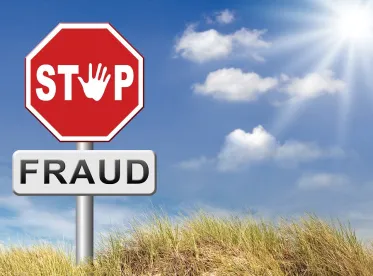After U.S. Attorney General, William P. Barr[1] and the Federal Bureau of Investigation issued warnings this week regarding potential fraudulent schemes that are being perpetrated in the nation’s response to the COVID-19 pandemic, on Sunday, March 22, 2020, the U.S. Department of Justice (DOJ) filed its first enforcement action to shut down COVID-19-related fraud. DOJ attorneys moved in federal court in Austin, Texas for a temporary restraining order against operators of a website, coronavirustestingkit.com, alleged to have engaged in a wire fraud scheme by offering consumers access to “free” World Health Organization (WHO) vaccine kits in exchange for a shipping charge, which required consumers to enter credit card information on the website.[2] The website stated that the kits “only” required water to administer the vaccine and provided testimonials from “recent users.” The government alleged that claims made on the website are false, as the WHO is not offering free vaccine kits and there is not yet a scientifically proven vaccine, and that the intent of the website is to gain access to consumer credit card information.
On March 16, 2020, U.S. Attorney General Barr directed in a memorandum to U.S. Attorneys that “[e]very U.S. Attorney’s Office is thus hereby directed to prioritize the detection, investigation, and prosecution of all criminal conduct” related to the COVID-19 outbreak.[3] Attorney General Barr advised, “the pandemic is dangerous enough without wrongdoers seeking to profit from public panic,” and therefore, such criminal conduct will not be tolerated.
Similarly, the FBI issued a Public Service Announcement on March 20, 2020, warning that “scammers are leveraging the COVID-19 pandemic” to perpetrate COVID-19-related internet based fraud schemes.[4]
Both DOJ and the FBI noted that there are individuals and businesses who are apparently exploiting the pandemic by:
- selling fake cures for COVID-19 or treatments online;
- sending phishing emails from entities posing as the World Health Organization (WHO) or the Centers for Disease Control and Prevention (CDC) designed to download malware or elicit personal identifying and financial information;
- inserting malware into mobile apps designed to track and spread the virus to compromise devices and steal personal identifying information;
- sending phishing emails asking for the verification of personal identification in order to receiving an economic stimulus check; and
- selling counterfeit products such as sanitizing products, masks, goggles, gowns, gloves and medical supplies.
The U.S. Attorney’s Offices throughout the country are currently establishing COVID-19 Fraud Task Forces to investigate and prosecute coronavirus-related fraud, with other civil and criminal enforcement actions sure to follow.
[1] https://www.justice.gov/coronavirus
[2] https://www.justice.gov/opa/pr/justice-department-files-its-first-enforcement-action-against-covid-19-fraud; United States v. John Doe, a/k/a “coronavirusmedicalkit.com”, Civ. No. 1:20-CIV-306, (W.D. Tx.).





 />i
/>i
